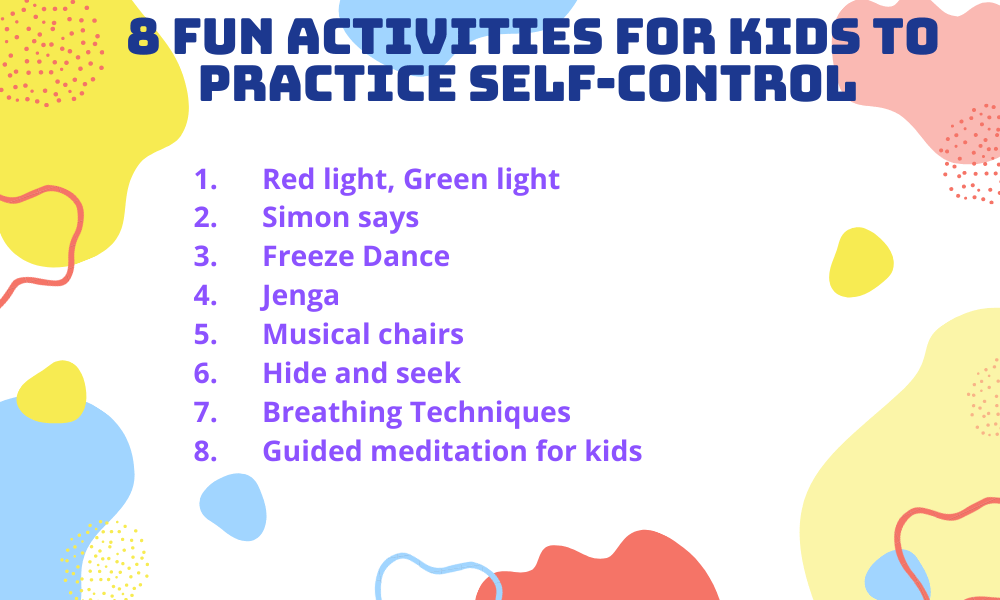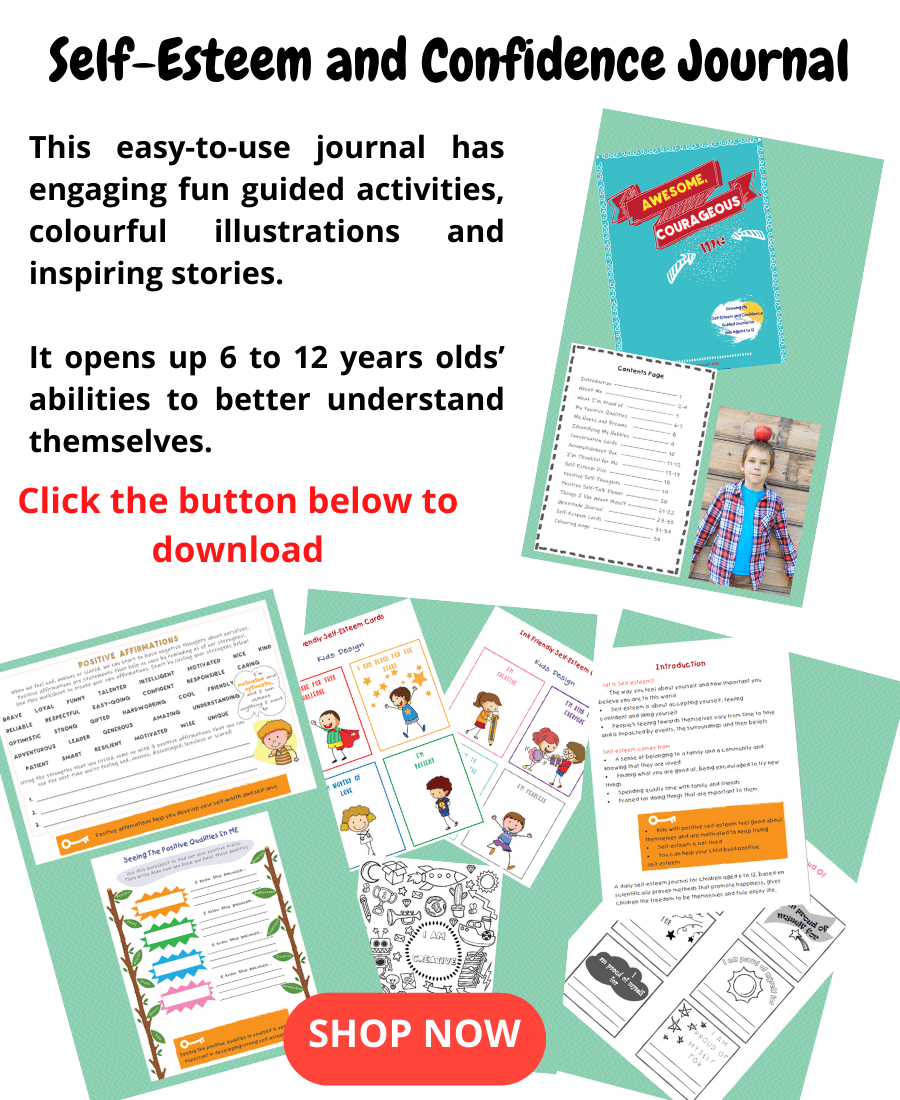Self-control is a necessary skill we all must learn to successfully adapt to real-life situations, especially once we leave the comfort of home and find our places in society.
The same is true for our children as well which is why as parents, we have a large role to play when it comes to coming up with self-regulation activities that will help them develop the discipline they need to adjust to life outside the comfort of our loving arms.
However, this is easier said than done as self-control is something that we naturally have at birth – it takes time, dedication, and intense discipline to develop. With that said, here are some activities you can engage in with your little one to teach them how to discipline themselves.
Self-Regulation Definition: What Is It?
According to Psychology Today, self-regulation or self-control is one’s ability to subdue their emotions, impulses, and behaviours to achieve more long-term goals. This ability to self-regulate is what separates us, humans, from the rest of the animal kingdom and this is primarily because we have a larger prefrontal cortex than other species of animals.
Why Self-Regulation Is Important
Self-regulation is an important skill to develop, especially in our younger years, because it allows enjoying a more reliable and improved emotional well-being. This is because by being able to delay immediate gratification, we can act in our best interests and achieve more long-term goals from which we will benefit more.
Aside from that, studies have shown that self-regulation plays a large role in having enhanced emotional intelligence which is an ability that is crucial to our survival in society. Therefore, by teaching self-regulation to our little ones, we are equipping them with one of the most important skills they need to adapt to life, especially once they become adults.
Examples of Self-Regulation
The main example of self-regulation in action is the ability to keep your emotions in check, even when the situation is uncomfortable for you. This is evident in situations like:
- A retail employee can remain calm even in the face of an angry customer.
- A student who opts to stay at home and study for an exam instead of having a night out with friends
- A person being able to resist the temptation of unhealthy food while on a diet
- A child who doesn’t throw a tantrum when he or she doesn’t get what they want
While there are other examples, this is simply some of the ones wherein self-regulation is at its most evident.
The 3 Stages of Self-Regulation
The process of acquiring self-regulation comes in three stages and they are as follows:
Forethought or the Planning Stage
This entails outlining the task needed to be done, what your or your child’s goals are, and coming up with the strategies on how to take on the task as well as a schedule for it.
Performance Control or the Monitoring Stage
This is the part wherein your child puts into motion the things they listed down in the previous stage and this includes monitoring their performance and progress as well as how well the method they chose is working for that specific task.
Self-Reflection
This comes after completing the task and the results are readily available. In this stage, they will reflect on their performance and whether or not they did well as well as why the results are the way they are.
7 Methods to Boost Your Child’s Emotional Regulation
Now that we have a better grasp on the concept, it’s now to get into the details of teaching self-regulation to your child. These methods are proven to be effective by scientifically-backed research, taking into account the well-being and development of your child.
Build a trusting and loving relationship with your child
The foundation of any relationship is trust, whether it’s with your child or a fellow adult. A positive emotional environment wherein trust is the foundation is constantly related to better self-regulation.
The more they trust you, the more likely they will respond positively to what you’re teaching them and learn that they can trust that their reward will eventually come.
Set a good example by practising self-regulation yourself
Adults, especially parents, largely influence how a child behaves which is why it’s often emphasized that as parents and adults, we behave properly and become proper role models to the younger generations.
By practising emotional regulation ourselves, our children will see how it should be done and they will learn to regulate their own emotions as well. This is based on the social learning theory of modelling by Albert Bandura.
Knowledge is power
The more they know, the better they will understand. By educating them about the basics of self-regulation, like how to recognize stress and teaching them how to cope with it, they will have a better understanding of why they need to learn it and therefore, become more motivated to learn it.
Practice makes perfect and consistency is key
Since self-regulation is a skill that is developed over time, it makes sense that practising it consistently can only further improve it. Because the prefrontal cortex in children isn’t yet as well-developed in children as in adults, they must practise the behaviour consistently as this will build the neural pathways necessary to develop this skill.
Help them by keeping routines like mealtimes and bedtimes which will instil in them not just self-regulation but also good habits as well. Practising breathing can also help with calming their frayed nerves and better instilling in them the concept of self-regulation.
Explore coping methods together
Since self-regulation entails delaying immediate gratification for a better reward, it might become difficult for your child and this will lead to them feeling frustrated. After all, why should they have to give up that treat for a later reward?
One way you can help them better understand the importance of self-regulation and build trust between the two of you at the same time is by exploring ways on how to cope with the frustration together. Aside from teaching them the tools needed to cope with the frustration, you will also gain a better understanding of what soothes your child.
Reward them for successful attempts
Rewarding them for successfully practising emotional self-regulation such as when they don’t throw a tantrum after not getting what they want won’t just enforce the behaviour but it will also foster deeper trust in the idea that self-regulation is worth it.
The concept of rewarding behaviour you want to reinforce is based on the theory of operant conditioning by B.F. Skinner.
Utilize interactive activities like games in teaching the concept
Games have been proven to be a great teaching strategy, not just for children but also for adults. Games like The Freeze Game, Red Light Green Light, and others are effective ways of teaching your child how to follow instructions. However, to help them better develop self-regulation, you can also put a twist to these classic games, reversing the rules which will make it more challenging for your child.

Teaching Self-Regulation to a Child
Practising self-regulation in adults is already difficult in itself and teaching a child, whose brain is still developing, the same principle poses different challenges. Nevertheless, teaching self-regulation to your child is an important part of being a parent as this is a vital skill for their survival in society.
Self-Regulation Tools for Children
To end, here are some of the tools your child needs to successfully practise self-regulation.
- Mindfulness – This is the ability to intentionally pay attention to the present situation.
- Cognitive Reframing – This is the ability to change the way they think to adjust their reaction to a frustrating situation.
- Adaptability – This is the ability to be flexible and adapt to any situation, helping them cope with something they find unfavourable.
Final Thoughts
The aforementioned self-regulation methods are just some of the more effective ways of teaching self-regulation to your child. Teaching self-regulation to a child is a difficult task but as parents, we have to equip them with the skills necessary to adapt to the realities of life, especially since we won’t be around forever.
You can also grab our very own Self-Esteem and Confidence Journal for kids and complete a few pages each day.
Check out my article on 100 positive affirmations to instil a positive mindset in children.
Join our new Facebook group Free Printables to Raise Happy, Calm and Confident Kids to get access to 100’s of free printables for your kids
References:
- Parenting for Brain, Self-Regulation & Emotional Regulation Skills in Children, 2020 April. Link here.
- Angela Pruess, 6 Guaranteed Ways To Boost Your Child’s Emotional Regulation Skills, 2018. Link here.
- Psychology Today, Self-Control. Link here.
- Shaharam Heshmat Ph.D., 10 Strategies for Developing Self-Control, 2017 March. Link here.
- Laura Markham Ph.D., 8 Steps to Help Your Child Develop Self-Control, 2015 June. Link here.
- Gwen Dewar Ph.D., Teaching Self-Control: Evidence-Based Tips, 2011-2019. Link here.
- Steven Stosny Ph.D., Self-Regulation, 2011 October. Link here.
- Norman M. White, Reward: What Is It? How Can It Be Inferred from Behavior?, 2011, PMID: 22593908
- Saul McLeod, Skinner: Operant Conditioning, 2018. Link here.
- Indiana University Bloomington, Games for Learning. Link here.
- Courtney E. Ackerman, MSc., What is Self-Regulation (+95 Skills and Strategies), 2020 April. Link here.
- Courtney E. Ackerman, MSc., What is Emotional Intelligence +18 Ways to Improve It, 2020 April. Link here.
- Ainize Peña-Sarrionandia, Moïra Mikolajczak, and James J. Gross, Integrating emotion regulation and emotional intelligence traditions: a meta-analysis, 2019 November. PMID: 25759676
- University of Connecticut, Phases of Self-Regulation. Link here.
- Elizabeth B. Lewis, Katrien van der Hoeven Kraft, Nievita Bueno Watts, Meredith J. Wilson, Dale R. Barker, and Michael Lang, Elementary Teachers’ Comprehension of Flooding through Inquiry-based Professional Development and Use of Self-regulation Strategies, 2011 July. Link here.
- Saul McLeod, Bandura – Social Learning Theory, 2016. Link here.
- Arlin Cuncic, Steven Gans, MD, How to Develop and Practice Self-Regulation, 2020 January. Link here.
- SkillsYouNeed, Self-Regulation|Self-Management. Link here.




1 Comment
Hi, This is a great article. I will definitely be trying out some of these strategies on my 7 year old. Thank you for sharing.